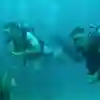


The world needs people like you. An environmental scientist in the making, who can understand and manage the issues shaping our planet.
Join a University that cares deeply about a sustainable future for all. Our IES-accredited course1 will give you a range of practical, field and analytical skills to help you solve real environmental problems.
You can take part in field trips to the UK and overseas. Spend a year studying abroad or on placement. And learn to scuba dive as part of your degree.
About this course
Hull’s growth as a hub in this developing field means there are few places better to study the subject. Our degree will give you a deep understanding of the complex forces shaping our planet. You'll gain a thorough theoretical and practical grounding in the elaborate nature of environmental systems, and our relationship with them.
You'll spend much of your time 'learning by doing'. Whether that's analysing samples in the lab. Or developing digital skills such as in Geographical Information Systems (GIS). Or on field trips to destinations like Brazil, Egypt and Mallorca.1 And it’s all backed up by lectures and seminars with experts in biology, geography and earth science.
You can specialise in specific ecological, chemical or physical aspects of the environment. And choose your own research project on a topic you love, supported by specialist modules. Plus, you can learn to dive alongside your degree. So you'll graduate with even more specialist skills like underwater navigation and photography.2
Tackle some of the planet's greatest challenges
Year abroad
Study Abroad programmes take place over a full academic year. This extends a standard undergraduate degree from three to four years, with study abroad taking place in year three. Once you've completed your study abroad year, you'll return to complete the final year of your degree at the University of Hull.
There are many reasons to undertake a study abroad year. For one, you’ll make unforgettable memories with a whole range of countries to choose from. But more than that, you’ll boost your confidence and your contacts. And you’ll gain skills that will make employers take notice of you: curiosity, sociability, adaptability, and intercultural awareness.
Module options
Each year, you’ll study modules worth a certain number of credits, and you need 120 credits per year. Most modules are 20 credits – so you’ll study six modules each year. Some longer modules, such as a dissertation, are worth more. In these cases, you’ll study fewer modules - but the number of credits will always add up to 120. Some modules are compulsory, some are optional, so you can build a course that’s right for you.
Filters
Planet Earth
Develop an understanding of the Earth as a planet – the atmosphere and oceans working together to create global patterns of climate and ocean circulation; plate tectonics and the movement of continents; living systems evolving over time and forming the global biosphere; and the surface processes of accumulation and erosion shaping the landscapes around us. The module will help you to see how ideas in physical geography can be used to understand patterns observed in the natural environment at a global and continental scale.
compulsory
20 credits
Exploring Worlds Around Us
You’ll find out about many different ways of studying the world around us by exploring a specific field trip location.
compulsory
20 credits
Marine Biology: An Introduction
From space, the planet is blue. Marine life has evolved into a myriad of forms living in some of the most extreme habitats on the planet; from great depths to battered coasts. This introduction to marine biology explores the marine environment, the diversity of life within it and how to conserve it.
compulsory
20 credits
Environmental Problems and Solutions
Discover the fundamental principles of environmental systems and the interconnectedness of humankind with the environment.
compulsory
20 credits
Interpreting Environments
This module introduces you to some key tools we use to interpret the environments around us, such as computer mapping and data analysis.
compulsory
20 credits
Ecology (with optional Dive Training)
Ecology is the study of interactions among living organisms and their environment, and is the basis for nature conservation and understanding human impact on the planet. Gain an understanding of ecological theory, applied ecology, and the collection and analysis of ecological data. You can choose to complete integrated PADI Advanced Open Water training, with an opportunity to develop specialist diving skills relevant to ecological science.
compulsory
20 credits
Frontiers in Environmental Science
Gain practical experience of working in small groups to design and carry out research investigations, to prepare you for designing and planning your dissertation project.
core
20 credits
Geographical Information Systems
Develop your understanding of the principles and processes behind GIS, the nature and use of spatial data and the application of GIS on this practical module.
compulsory
20 credits
Sustainable Futures
Study key issues relating to the concept of sustainability and attempts to create more sustainable ways of living.
optional
20 credits
Our facilities




Featured academics
Over 80 environmental experts and world-leading scientists make up our Energy and Environment Institute.
People who bring their research, experience and passion into everything they teach. And you’ll get the chance to study with and learn from them.

Dr Alex Riley
Lecturer in Environmental Science
Alex’s research focuses primarily on the use of GIS and field studies to assess the risks posed by legacy waste landfill sites on the coastal environment, and how these risks may change under future climate scenarios.

Professor Will Mayes
Environmental Science
Will’s passionate about field and practical-based teaching to help us manage the environmental issues we currently face. His research investigates how we can better manage the most carbon-intensive and polluting sectors of our economies.
Entry Requirements
What do I need?
This course is currently available through Clearing, which means our entry requirements are a bit different to what they would normally be.
At Hull, you're a name not a number. During Clearing, we look at all of your qualifications and experience, not just your academic grades. We may be able to offer you a place whatever your situation. Get started by completing our eligibility checker, and find out immediately if you could study at the University of Hull.
Have questions? Our admissions team will be happy to help.
Fees & Funding
How much is it?
For UK students, our standard course fee is £9,535 per year. Keep in mind that some courses are longer - for example, spending your third year abroad will make your degree four years in total.
If you choose to study a foundation year as part of your course, the fee is £9,535.
Planning a year abroad? This costs £1,430 for UK students.
Thinking about a year in industry? This is £1,907 for UK students.
Standard Tuition Fee
£9,535 / year
Year Abroad Fee
£1,430
The amount you pay may increase each year, in line with inflation - but capped to the Retail Price Index.

Future prospects
Once you graduate, you’ll be qualified to pursue geological careers in environmental consulting, remediation, renewable energies, exploration geology, surveying and engineering, with employers including the likes of the Environment Agency, environment consultancies, local councils or wildlife trusts.
Or you can put the transferable practical, research and numerical skills you’ll develop to good use in a wholly different way: teaching, finance, data analysis, and more.
The programme is also an ideal platform for further study.
Become part of the next generation of futuremakers
Like what you’ve seen? Then it’s time to apply.
The standard way to apply is through UCAS. This will give you the chance to showcase your skills, qualities and passion for the subject, as well as providing us with your academic qualifications.
Not ready to apply yet?
Visit our next Open Day, and see all that Hull has to offer for yourself. Talk to our lecturers about your subject, find out what university is really like from our current students, and take a tour of our beautiful campus and amazing facilities.
You may also be interested in...
BSc Environmental Science is accredited by the Committee of Heads of Environmental Sciences (CHES), which is the education committee of the Institution of Environmental Sciences (IES). CHES is the collective voice of the environmental sciences academic community. It serves to enhance the quality of environmental education worldwide.
Most overseas field trips run in the summer between the second and third year. There is an extra charge, but the trips are subsidised. Destinations listed above are currently included in our list of field trip opportunities, but may be subject to change.
Choose subsidised dive training as part of our Ecology module and become a PADI-certified Advanced Open Water Diver. Extra fee may be payable.
All modules on this course page are subject to availability and this list may change at any time.
